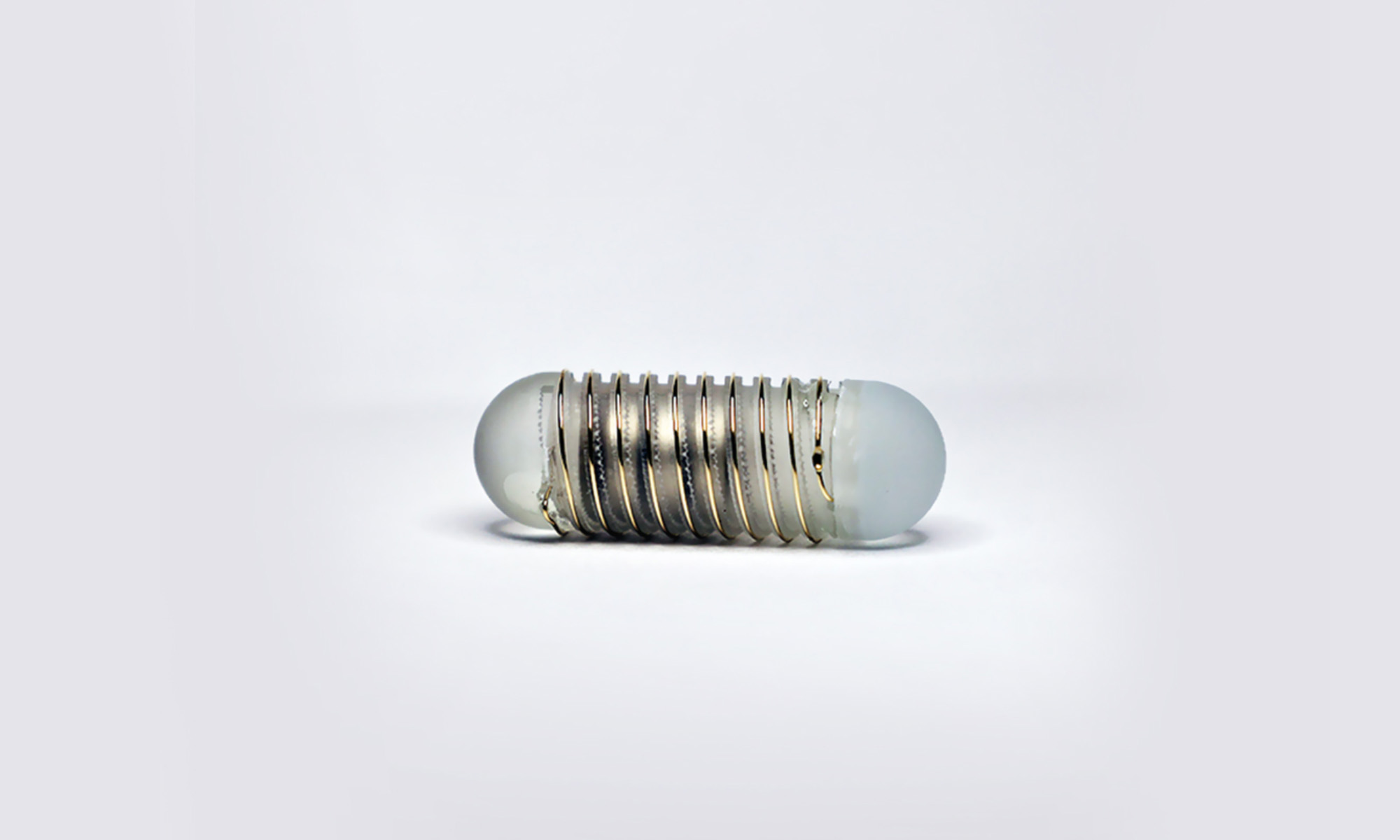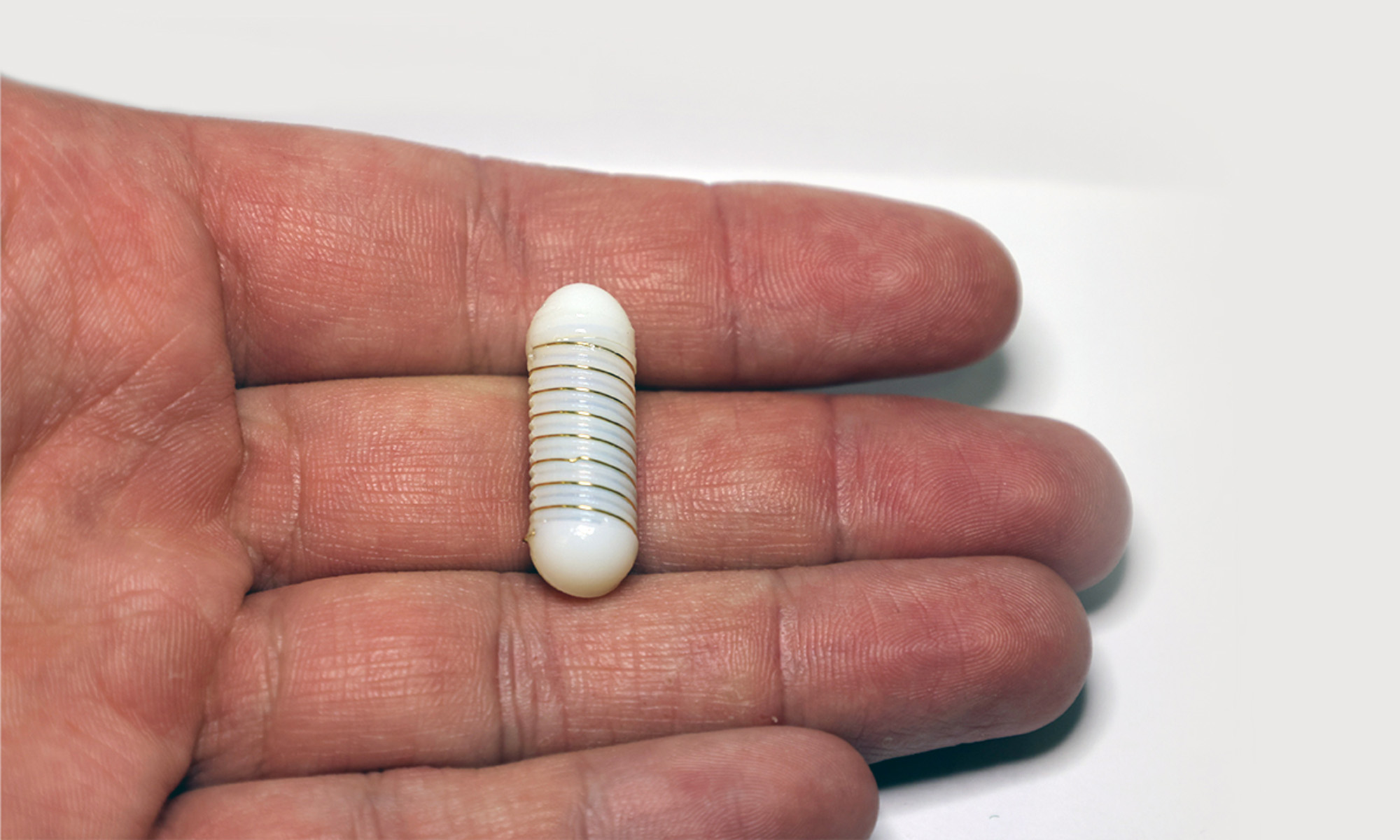News
Abu Dhabi Scientists Create Electronic Appetite Regulation Pill
The tiny device utilizes electrodes to stabilize and regulate the gut-brain axis, which can help control appetite and treat several diseases.

A research team from NYU Abu Dhabi (NYUAD), overseen by Professor Khalil Ramadi, has created a groundbreaking “ingestible electroceutical device” known as the FLASH system. The pill-shaped device modulates the signaling pathway between the digestive tract and the central nervous system and is administered like a regular ingestible capsule tablet.
Featuring surface electrodes that deliver stimulation to the stomach’s mucosal tissues, the non-invasive device bypasses gastric acids to achieve direct electrode-to-tissue contact. The ingestible pill is powered by tiny batteries, delivering stimulation for around 20 minutes before being excreted by the body — a process that can take up to two weeks, depending on the size of the human or animal test subject.

“FLASH is one of the first ingestible electroceuticals that can regulate precise neurohormonal circuits while avoiding the discomfort patients can experience with invasive treatments,” says Professor Khalil Ramadi, NYU Abu Dhabi.
Researchers on the FLASH project were inspired by the unique skin surface properties of the Australian Thorny Devil Lizard, whose skin can efficiently wick away surface moisture. The pill replicates this process by using grooved surface patterns and hydrophilic properties that enable it to be ingested and excreted without side effects.
Also Read: Sultan Al Neyadi Becomes The First Ever Arab To Spacewalk
During testing, scientists noted that the capsule modulated the release of the hormone ghrelin, which the body uses to stimulate hunger. Regular hormone medications have poor bioavailability in oral form, requiring an injection to administer. The FLASH system, on the other hand, can target very specific gastric-hormonal pathways through simple oral administration.
The FLASH pill shows promise against a wide range of diseases, including metabolic, gastrointestinal, and neuropsychiatric disorders. Unfortunately, the device requires further preclinical testing before being ready for the public market. However, the development team has set a goal of creating an advanced prototype for human trials within five years.
News
Rabbit Expands Hyperlocal Delivery Service In Saudi Arabia
The e-commerce startup is aiming to tap into the Kingdom’s underdeveloped e-grocery sector with a tech-first, locally rooted strategy.

Rabbit, an Egyptian-born hyperlocal e-commerce startup, is expanding into the Saudi Arabian market, setting its sights on delivering 20 million items across major cities by 2026.
The company, founded in 2021, is already operational in the Kingdom, with its regional headquarters now open in Riyadh and an established network of strategically located fulfillment centers — commonly known as “dark stores” — across the capital.
The timing is strategic: Saudi Arabia’s online grocery transactions currently sit at 1.3%, notably behind the UAE (5.3%) and the United States (4.8%). With the Kingdom’s food and grocery market estimated at $60 billion, even a modest increase in online adoption could create a multi-billion-dollar opportunity.
Rabbit also sees a clear alignment between its business goals and Saudi Arabia’s Vision 2030, which aims to boost retail sector innovation, support small and medium-sized enterprises, attract foreign investment, and develop a robust digital economy.
The company’s e-commerce model is based on speed and efficiency. Delivery of anything from groceries and snacks to cosmetics and household staples is promised in 20 minutes or less, facilitated by a tightly optimized logistics system — a crucial component in a sector where profit margins and delivery expectations are razor-thin.
Despite the challenges, Rabbit has already found its stride in Egypt. In just over three years, the app has been used by 1.4 million customers to deliver more than 40 million items. Revenue has surged, growing more than eightfold in the past two years alone.
Also Read: Top E-Commerce Websites In The Middle East In 2025
CEO and Co-Founder Ahmad Yousry commented: “We are delighted to announce Rabbit’s expansion into the Kingdom. We pride ourselves on being a hyperlocal company, bringing our bleeding-edge tech and experience to transform the grocery shopping experience for Saudi households, and delivering the best products – especially local favorites, in just 20 minutes”.
The company’s growth strategy avoids the pitfalls of over-reliance on aggressive discounting. Instead, Rabbit leans on operational efficiency, customer retention, and smart scaling. The approach is paying off, having already attracted major investment from the likes of Lorax Capital Partners, Global Ventures, Raed Ventures, and Beltone Venture Capital, alongside earlier investors such as Global Founders Capital, Goodwater Capital, and Hub71.
























